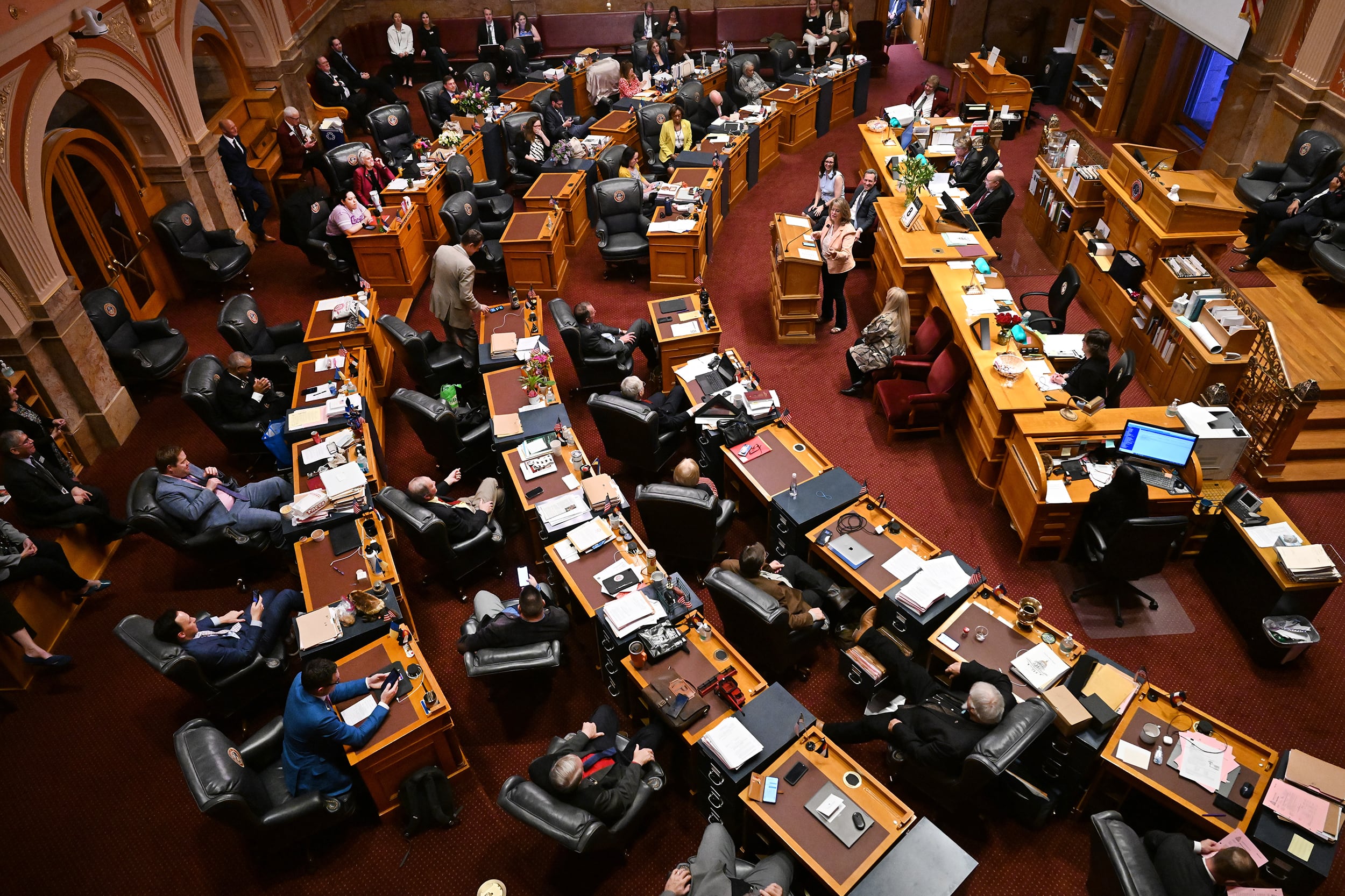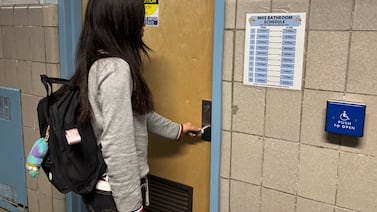Sign up for Chalkbeat Colorado’s free daily newsletter to get the latest reporting from us, plus curated news from other Colorado outlets, delivered to your inbox.
State Rep. Hugh McKean saw a problem. Although Colorado had an outlet for students to talk with lawmakers about issues relevant to them, those conversations happened near the end of the legislative session, and the students’ priorities often got lost.
So in 2019, the late Republican lawmaker from Loveland helped pass a law to revamp the Colorado Youth Advisory Council. It allowed students to meet before the legislative session to discuss priorities and present policy proposals, with up to three getting drafted into bills.
“They can come and present their ideas and refine those ideas right here in the Capitol,” McKean said at the time.
But now, after six years of being able to draft real bills that have a shot at becoming law, COYAC is expected to lose that power. What started as a conversation among state lawmakers about cutting about $50,000 to run the program amid a $1.2 billion budget shortfall this year turned into altering the program after Republican leadership said it has strayed away from its original mission.
Republican leadership also said that legislators are paying for the group to draft laws — a few of which conservative lawmakers, who are in the minority, have opposed. They’ve argued the legislature doesn’t do that for other groups.
The program was created in 2008 by former Durango Republican Rep. Ellen Roberts and brings together 40 students between the ages of 14 and 19 from Colorado’s 35 Senate districts and the Ute Mountain Ute and Southern Ute tribes. Students serve two-year terms.
Since 2019, student ideas have inspired more than a dozen bills, including the three under consideration this year. One proposal would reduce food waste in schools. Another bill would have students on the council advise lawmakers on the youth opioid crisis.
Sarah Moss, COYAC director, has pointed out how valuable the program is to the students. She’s pleaded with lawmakers to keep it, because students learn about the legislative process, how to talk with lawmakers, and other valuable skills.
While the program will go on helping students learn and experience the legislative process, it’s clear students won’t be able to get legislation in front of lawmakers any longer. With that power gone, here are seven of the most significant laws that the council has helped inspire:
Student preferred names
One of the council’s more contentious bills, House Bill 24-1039 was an effort by students to support transgender youth and protect them from bullying.
The law says educators must call students by their preferred name upon request. Supporters said it reduces discrimination against transgender students and creates a more inclusive environment statewide. Colorado House and Senate Democrats, who are in the majority, overwhelmingly supported the bill.
Meanwhile, opponents at the time pushed back because they felt it would infringe on educator and parent rights.
College financial assistance for foster youth
In 2021, COYAC students recognized that students in the foster care system had trouble getting to college. Citing a report from the University of Denver’s Colorado Evaluation and Action Lab, they highlighted that only 13.4% of students who entered foster care at age 13 enrolled in college by age 21.
Their focus on the issue helped lawmakers file Senate Bill 22-008. The law sets aside $5 million a year in financial aid support for the about 4,500 foster kids statewide who might decide to go to college.
Student mental health resources
COYAC students had a hand in the information on Colorado student identification cards.
House Bill 22-1052 requires the identification cards to include the number, the website, and text to talk number of the 24-hour state’s crisis service center and Safe2Tell, a violence intervention and prevention program for students to anonymously report threats.
Eating disorder prevention
Colorado residents also have resources about eating disorders thanks to student ideas.
Senate Bill 23-014 created the Disordered Eating Prevention Program within the Department of Public Health and Environment, as well as a research grant that helped fund studies on the impacts and how to prevent eating disorders.
The program holds information for Colorado residents on interventions, treatments, and other educational resources. Budget cuts will eliminate the program next year.
Student voice in academic standards review
Senate Bill 23-008 created opportunities for students to get involved in the state’s education standards review, giving students a voice in what they learn.
Student discipline review committee
A COYAC idea helped the state dig into discipline practices and whether certain groups of students were being disproportionately disciplined. Senate Bill 23-029 created a task force made up of 18 members and charged with reviewing discipline data and policies. It released a final report in August.
Free menstrual products in schools
Colorado schools are required to provide free menstrual products in school bathrooms after House Bill 24-1164.
The law ramps up how much schools must provide. For instance, schools must provide at least 25% of applicable student bathrooms in all applicable school buildings by June 30.
Jason Gonzales is a reporter covering higher education and the Colorado legislature. Chalkbeat Colorado partners with Open Campus on higher education coverage. Contact Jason at jgonzales@chalkbeat.org.






